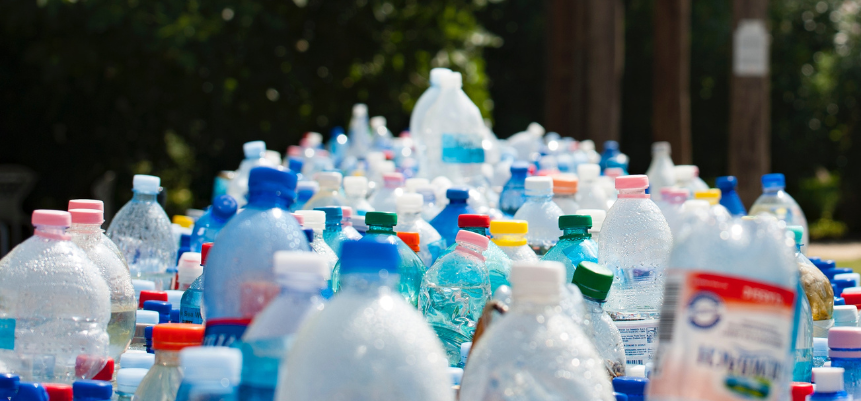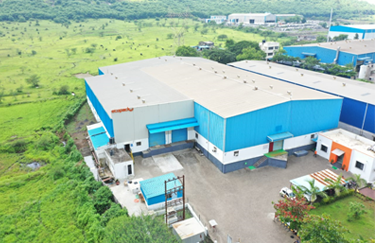Picture this: you’re at a grocery store, and you grab a plastic water bottle. After quenching your thirst, what do you do with it? Is it destined for the landfill, or will it embark on a recycling adventure? Recycling plastic is a crucial process in the fight against plastic pollution and environmental degradation. In this blog, we will delve into the fascinating journey of a plastic bottle from the moment it’s purchased to its ultimate destination in the recycling process. We will also explore the significance of plastic recycling and the positive impact of sustainable packaging, such as paper bags and other alternatives, to help create a greener future.
Step 1: Purchase and Consumption
Our journey begins with a consumer buying a plastic water bottle. In India, over 1 million plastic bottles are purchased every minute, with only a fraction of them being recycled properly. The convenience of single-use plastic has led to its rampant use, exacerbating the plastic waste crisis.
Step 2: Disposal
Once the bottle is emptied, the fate of the plastic lies in the hands of the consumer. Unfortunately, a significant portion of plastic waste ends up in landfills or improperly discarded in the environment. India generates around 9.4 million tons of plastic waste annually, with an alarming 40% remaining uncollected and scattered in nature, clogging water bodies, and harming wildlife.
Step 3: Collection and Sorting
If the plastic bottle is responsibly disposed of in a recycling bin, its recycling journey officially begins. In India, various initiatives are in place to collect plastic waste, both through government-led programs and private sector initiatives. The collected plastic waste undergoes a meticulous sorting process to separate different plastic types. This step is essential as different plastic polymers have varying properties and recycling capabilities.
Step 4: Cleaning and Processing
After sorting, the plastic is cleaned to remove any impurities or contaminants. Proper cleaning is crucial to ensure the quality of the recycled material. The cleaned plastic then goes through a processing unit where it is shredded into small pieces or flakes. These flakes are the starting point for the recycling process.
Step 5: Recycled Plastic Pellets
The shredded plastic flakes are further melted and shaped into small pellets known as recycled plastic pellets. These pellets are the raw material for manufacturing a wide range of products. It is estimated that around 60% of India’s plastic waste can be recycled, providing a valuable resource for the manufacturing industry.
Importance of Plastic Recycling
Plastic recycling holds immense significance for the environment and society:
1. Reducing Landfill Burden: By recycling plastic, we divert a significant amount of waste from landfills, reducing the burden on these already overflowing sites. This helps prevent soil and water pollution caused by plastic leachates.
2. Conserving Resources: Recycling plastic means using fewer virgin resources, such as crude oil, which is the primary raw material for plastic production. Conserving these resources ensures their availability for future generations.
3. Mitigating Greenhouse Gas Emissions: The energy saved by recycling plastic instead of producing it from scratch helps reduce greenhouse gas emissions, contributing to India’s efforts to combat climate change.
Sustainable Packaging: Paper Bags and Alternatives
As we strive for a plastic-free future, sustainable packaging options like paper bags and other alternatives play a vital role:
1. Paper Bags: Paper bags are an excellent replacement for single-use plastic bags. They are biodegradable, which means they break down naturally in the environment, causing minimal harm. India alone consumes over 16.5 million tons of plastic annually, with most of it ending up as waste. By embracing paper bags, we can significantly reduce this burden.
2. Paper Cups and Sticks: In addition to paper bags, paper cups and paper sticks offer a more sustainable alternative to plastic cups and stirrers. India’s vibrant street food culture is a significant contributor to plastic waste, with disposable plastic cups and sticks being commonly used. Transitioning to paper-based alternatives can substantially reduce plastic waste.
Plastic recycling is a vital step in curbing plastic pollution and protecting our environment. From purchase and consumption to the final journey as recycled plastic pellets, understanding the plastic recycling process can empower us to make more responsible choices. By opting for sustainable packaging, like paper bags and other alternatives, we can actively contribute to a greener and cleaner future.
Ecopack with its mission to minimally harm the environment produces several sustainable packaging solutions like paper bags, paper cups, paper sticks, baking moulds made from paper, etc. Check out Ecopack’s offerings in the sustainable packaging industry here.
Let us take a stand against plastic pollution and embrace eco-friendly practices to ensure a healthier planet for generations to come.



